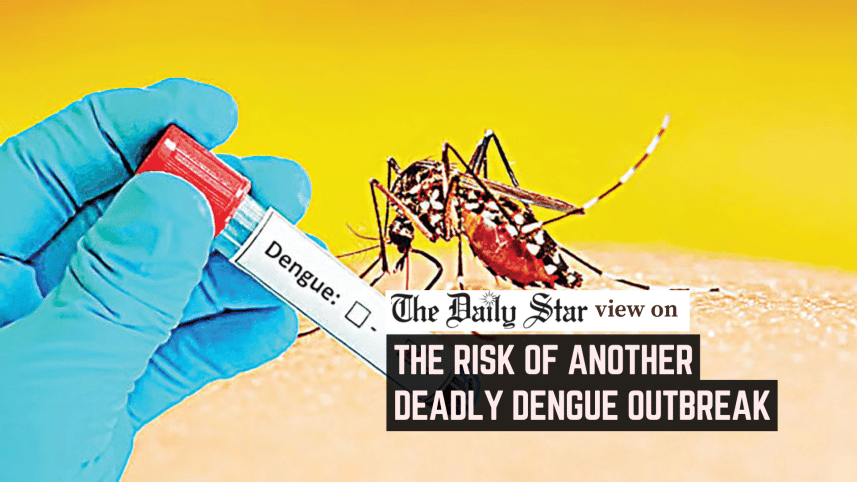Dengue surge demands urgent action

The rapidly rising dengue cases in the country raise a pressing concern: are we heading towards another deadly outbreak this year? The hospitalisation of 1,160 dengue patients in just the first three days of July paints an alarming picture. According to DGHS data, as of July 4, dengue has claimed 45 lives, with the total number of reported cases reaching 11,660. Given the rapid spread of dengue during the monsoon season, the numbers are expected to rise further in the coming weeks. Experts have warned that all 64 districts could face more severe outbreaks than in previous years, as Aedes mosquitoes are now widespread across the country. Unless the government takes urgent and comprehensive action to curb the spread, we may suffer another devastating dengue crisis this year.
Since the beginning of the year, we have repeatedly urged the authorities through this column to take effective measures to curb dengue before it spirals out of control. Unfortunately, the government's response has been largely inadequate. Instead of implementing a comprehensive and well-structured dengue management plan, efforts have been mostly limited to routine fogging and occasional cleaning drives. Moreover, dengue control efforts outside Dhaka have been particularly weak. The recent surge in cases in Barguna is a stark example of this weakness.
This year, DGHS data reveal another troubling trend: women have a higher fatality rate relative to their infection numbers. Men account for 59.3 percent of infections and 53.3 percent of deaths, while women represent 40.7 percent of infections but 46.7 percent of deaths. While several factors may have contributed to this, experts point out that gender-based neglect plays a significant role here. Patriarchal norms often delay women's access to timely medical care, with families often seeking help only when it is already too late. This societal attitude must change if we are to reduce preventable deaths from dengue.
The government must urgently listen to expert advice and develop a comprehensive dengue management plan with clearly defined priorities. Entomologists emphasise that larviciding and the elimination of mosquito breeding grounds should be prioritised over general fogging, which has become largely ineffective. They recommend the use of Insect Growth Regulators (IGRs)—which remain effective for up to three months—alongside targeted larvicide application. Equally crucial is community involvement. Without active public participation in destroying breeding grounds, dengue cannot be effectively controlled. In parallel, the government must ensure that hospitals outside Dhaka are equipped with adequate treatment facilities. Experts have also called for a dedicated vector control department for cluster identification, surveillance, and targeted interventions. Timely implementation of these measures is critical to averting yet another deadly outbreak this year.



 For all latest news, follow The Daily Star's Google News channel.
For all latest news, follow The Daily Star's Google News channel. 

Comments